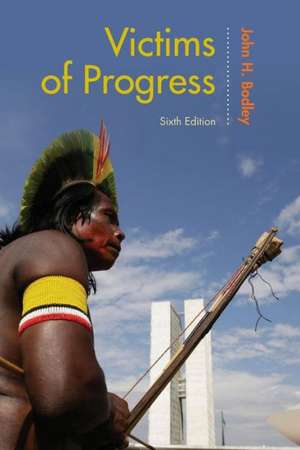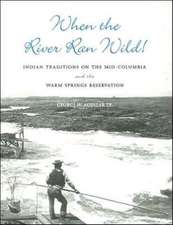Victims of Progress
Autor John H. Bodleyen Limba Engleză Paperback – 14 aug 2014
| Toate formatele și edițiile | Preț | Express |
|---|---|---|
| Paperback (1) | 443.02 lei 6-8 săpt. | |
| Rowman & Littlefield – 14 aug 2014 | 443.02 lei 6-8 săpt. | |
| Hardback (1) | 839.67 lei 6-8 săpt. | |
| Rowman & Littlefield – 20 aug 2014 | 839.67 lei 6-8 săpt. |
Preț: 443.02 lei
Preț vechi: 575.35 lei
-23% Nou
Puncte Express: 665
Preț estimativ în valută:
84.77€ • 88.51$ • 70.00£
84.77€ • 88.51$ • 70.00£
Carte tipărită la comandă
Livrare economică 15-29 aprilie
Preluare comenzi: 021 569.72.76
Specificații
ISBN-13: 9781442226937
ISBN-10: 1442226935
Pagini: 410
Ilustrații: 8 black & white illustrations, 10 black & white halftones, 2 tables
Dimensiuni: 154 x 231 x 25 mm
Greutate: 0.57 kg
Ediția:6 Rev ed.
Editura: Rowman & Littlefield
ISBN-10: 1442226935
Pagini: 410
Ilustrații: 8 black & white illustrations, 10 black & white halftones, 2 tables
Dimensiuni: 154 x 231 x 25 mm
Greutate: 0.57 kg
Ediția:6 Rev ed.
Editura: Rowman & Littlefield
Notă biografică
Cuprins
Preface and Acknowledgments
1: Introduction: Indigenous Peoples and Culture Scale
Culture Scale, Culture Process, and Indigenous Peoples
Large-Scale versus Small-Scale
Society and Culture
The Problem of Global-Scale Society and Culture
Social Scale and Social Power
Negative Development: The Global Pattern
Policy Implications
2: Progress and Indigenous Peoples
Progress: The Commercial Explosion
The Culture of Consumption
Resource Appropriation and Acculturation
The Role of Ethnocentrism Civilization¿s Unwilling Conscripts Cultural Pride versus Progress The Principle of Stabilization
3: The Uncontrolled Frontier
The Frontier Process
Demographic Impact of the Frontier
4: We Fought with Spears
The Punitive Raid
Wars of Extermination
5: The Extension of Government Control
Aims and Philosophy of Administration
Tribal Peoples and National Unity
The Transfer of Sovereignty
Treaty Making
Bringing Government to the Tribes
The Political Integration Process
Anthropology and Native Administration
6: Land Policies
The People¿Land Relationship
Land Policy Variables
7: Cultural Modification Policies
These Are the Things That Obstruct Progress
Social Engineering: How to Do It
8: Economic Globalization
Forced Labor: Harnessing the Heathens
Learning the Dignity of Labor: Taxes and Discipline
Creating Progressive Consumers
Promoting Technological Change
Tourism and Indigenous Peoples
9: The Price of Progress
Progress and the Quality of Life
Diseases of Development
Ecocide
Deprivation and Discrimination
10: The Political Struggle for Indigenous Self-Determination
Who Are Indigenous Peoples?
The Initial Political Movements
Creating Nunavut
Guna Self-Determination: The Comarca Gunayala
The Political Struggle
The Shuar Solution
CONAIE: Uprising Politics Reshaping Ecuador¿s Political Landscape
The Dene Nation: Land, Not Money
Land Rights and the Outstation Movement in Australia
Philippine Tribals: No More Retreat
Indigenous Peoples and the Arctic Council
The United Nations Declaration on the Rights of Indigenous Peoples
Tebtebba: An Indigenous Partnership on Climate Change and Forests
11: Petroleum, the Commercial World, and Indigenous Peoples
Petroleum: The Unsustainable Foundation of the Commercial World
The Gwich¿in and Oil Development in the Sacred Place Where Life Begins
Petroleum Development and Indigenous Rights in Ecuador
First Nations Opposition to Canadian Tar Sand Development
Athabasca Chipewyan First Nation (ACFN) vs. Shell Oil
Assigning Responsibility for Tar Sand Development
12: Global Warming and Indigenous Peoples
The Indigenous Response to Global Warming
Indigenous Peoples as Climate Change Refugees
Arctic Warming and Alaska Natives
Global Warming Perpetuators and Beneficiaries
Assessing the Global Costs of Climate Change & the Carbon Economy
13: Human Rights and the Politics of Ethnocide
The Realists: Humanitarian Imperialists and Scientists
The World Bank: Operational Manual 2005 and False Assurances
The Idealist Preservationists
You Can¿t Leave Them Alone: The Realists Prevail
Indigenous Peoples¿ Rights Advocates
Voluntary Isolation in the Twenty-First Century
Indigenous Peoples as Small Nations
Conclusion
Appendixes
Bibliography
Index
About the Author
Descriere
This compelling account of how technology and development affect indigenous peoples throughout the world provides a provocative context in which students can think about civilization and its costs.






